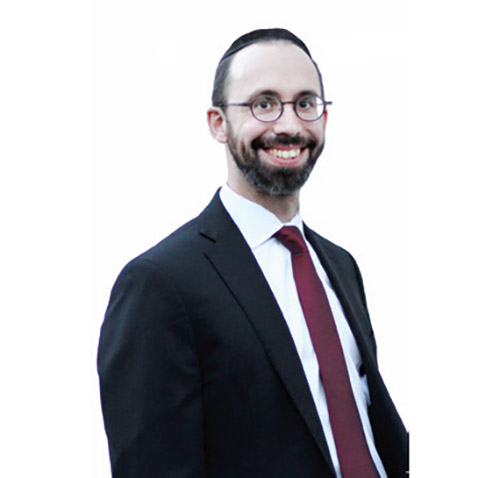
Michael Rothschild owned a small business and was running the Chofetz Chaim Foundation on the side for six years. He came to feel it required his full-time dedication, but that would mean dropping his business. He went to Rabbi Shmuel Kamenetsky for guidance and, to his surprise, Rabbi Kamenetsky advised him to become full-time director and leave his business. Michael heeded Rabbi Kamenetsky’s advice and undertook his life’s mission.
Since its inception, the Chofetz Chaim Foundation has impacted hundreds of thousands of Jews worldwide, often through its annual Tisha B’Av video, which is shown around the world. Michael was instructed to dedicate his life to the mission of raising awareness of the laws against lashon hara (derogatory speech) in the Jewish nation, creating global campaigns that are transforming our Torah observance and our personal relationships.
Michael chose to accept a life’s mission that was presented to him. Michael is not alone. At many junctures in life, each Jewish man and woman is presented with a mission that is unique to him or her.
The last parsha of Sefer Shemos is Parshas Pekudei: the accounting of the donations collected for the Mishkan (Tabernacle). Sefer Bereishis ended with the concept of the word “pakod.” In his last few moments, Yosef told his brothers, “pakod yifkod,” Hashem will surely remember you (Bereishis 50:24). The death of Yosef signified the start of the exile in Egypt. Yet, these two words were the guarantee that the exile would be temporary, and the Jews would eventually leave.
Sefer Shemos also begins with these words, as Hashem tells Moshe at the burning bush to tell the Jewish nation “pakod pokadti,” I have surely remembered you (Shemos 3:16). It seems no coincidence that the closure of Sefer Shemos—the book of our redemption—ends with a parsha named Pekudei.
However, besides Pekudei sharing the same root of the word pakod, it needs further explanation, since they are seemingly used in a different context. Here in Pekudei it’s referring to an account of the donations, but in reference to the redemption, pakod is translated as “remember.” What’s the connection?
Rav Friedlander explains that the meaning of the root word pakod is from the word tafkid, mission. With this new explanation, I believe we can explain the opening and closing of Sefer Shemos.
The Jewish people had a mission that included a time of slavery in Egypt, which helped the people develop into the Jewish nation. But that was just part of its mission. Hashem had and continues to have a specific plan and mission for each person and each object in this world!
Eileh pekudei (Shemos 38:21), these are the enumerations of the donations. Each donation, each piece of gold or silver, had a purpose and a mission. Nothing was random. All was part of Hashem’s master plan. The same was true—and continues to be true—for each and every one of us. At any given time, we may be figuratively tapped on the shoulder and asked to accept a “mission.” It’s not a time to turn away; rather, it’s an opportunity to be seized!
We no longer have prophets who can enlighten and instruct us as to our life’s mission. Not everyone is as lucky as Michael Rothschild to have been tapped for their personal life’s mission. But each and every one of us has such a mission. It’s part of our spiritual DNA. Only we can fulfill it. But it may take some soul searching on our part to figure out our individual missions.
A student of mine loves to help anyone who requests his help. I am very careful when I ask him for help, as I know he will drop everything to help another person. I asked him why he is so eager. His replied, “If someone asks me a favor, that’s Hashem sending me a mission. If I can work it out, even at a great inconvenience, I will do it.”
When an opportunity knocks—to help a family that needs a meal, to pick up groceries for a neighbor, to give business advice, or just to be a listening ear to someone in need—these are examples of individual missions specially tailored to us.
The sum of those missions creates our life’s work and defines us as Hashem’s creations.
By Rabbi Baruch Bodenheim
Rabbi Baruch Bodenheim is the associate rosh yeshiva of Passaic Torah Institute (PTI)/Yeshiva Ner Boruch. PTI has attracted people from all over northern New Jersey, including Teaneck, Bergenfield, Paramus, Rockaway and Fair Lawn. He initiated and continues to lead a multi-level Gemara learning program. Recently he has spread out beyond PTI to begin a weekly beis midrash program with in-depth chavrusa learning in Livingston and Springfield. This year he joined Heichal Hatorah in Teaneck as a Gemara iyun rebbe. His email is rb@ptiweb.org.










